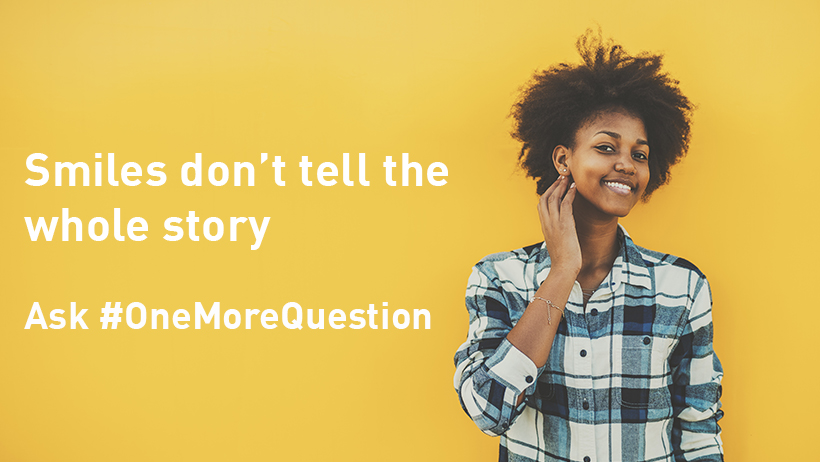Pacific Medical Centers Launch an Important Mental Health Awareness Campaign

To continue with our Mental Health Awareness month coverage, we recently had the privilege of connecting with Dr. Lisa Ivanjack, MD, of Pacific Medical Centers. Dr. Ivanjack is the Co-Chief of Primary Care at Pacific Medical Centers (PacMed) and a practicing internal medicine provider at their Canyon Park (Bothell) location; she has been named one of Seattle’s best doctors by her peers in 2015, 2016, 2017, 2018 and 2019. Her medical interests include preventive medicine, caring for chronic medical diseases, and women’s health.
According to The Washington Nurses Association, about 45 million people in this country (4.2 percent of the U.S. population) suffer from mental illness and at least 10 million of these people suffer from serious mental illness. With those stats in mind, PacMed has launched a campaign that highlights awareness, de-stigmatization, screening for depression and the role of primary care relationships as a first step in identifying potential concerns—OneMoreQuestion. Here’s what Dr. Ivanjack had to say:
Q: What is the motivation behind starting this campaign, and why is it so important?
A: The One More Question concept stemmed from an impactful story of a Pacific Medical Centers (PacMed) primary care provider after a family came in for a visit. The provider noticed something about one of the children and decided to continue with a depression screening, and the questions she asked revealed that this child had plans to end his life. Through the screening and recognition of this, they were able to receive resources and support. PacMed’s One More Question campaign encourages us to become present when asking one more question in our own lives; when checking in with a friend, patient, coworker or family member. Remember, we can all make a difference in someone’s outcome.
Life always seems to have its ups and downs, and those chaotic moments can come in waves. Maintaining our connections to one another helps to navigate the waters when our lives can mimic rough seas. Connections and their potential to influence our lives are why One More Question is an important conversation for all of us to be having.
May is also Mental Health Awareness month, a time for us to elevate the topic of mental health in our communities and to encourage others to join us in this work. We want to empower patients and our communities to take an active role in caring for themselves and their networks. As an organization, PacMed wants to connect with people before a crisis occurs. We want to open up the conversation about mental health, to de-stigmatize the topic of mental health and depression, and to remember depression does not look the same for everyone. We know that mental health issues will affect one in five Americans, so chances are there is someone you know who is affected.
Q: Personally, why is #OneMoreQuestion so important to you?
A: My daughter is in high school, which we all know can be a challenging stage of life. She and a friend noticed this and rallied to increase access to mental health support at their campus. These kids worked together with their high school’s leadership to form a Mental Health Support and Awareness Group; the first of its kind in their school district. It is a peer-to-peer check-in with the purpose to have students be open with one another.
While I am proud of my daughter, the rise of this club had me thinking about how this group of teenagers is embracing these tough conversations so boldly. These conversations are revealing the greater connections of which we are all capable. Go ahead, ask that One More Question.
Q: How (and where) can readers access #OneMoreQuestion themselves, and/or how can Seattleites take advantage of local resources?
A: As humans, we all want to and need to be seen and heard in an honest way.We may not have all of the answers or be able to solve someone else’s problems, but we can listen. The simple act of listening can drastically change someone’s outcome or perspective during a hard time in their life.
Big or small, these acts can bring a sense of caring into someone’s darkest times. One more question can have a profound positive effect on which path someone takes when struggling. Even those who seem the strongest need to know that others are there to support them. As a primary care doctor, I would encourage everyone to talk with their doctor. Your doctor can help identify resources, support or refer you to a licensed mental health provider.
If you are in crisis, please consider utilizing your local or national resources, which could include King County 24-hours Crisis Line at 1-866-4-CRISIS, National Suicide Prevention Lifeline at 1-800-273-TALK(8255) or the Crisis Text Line by texting TALK to 741741. It is important to remember you are not alone, in urgent cases, please call your health care provider and tell them it’s urgent, call 9-1-1, or go to your nearest emergency room at your local hospital. If you would like to learn more about the One More Question campaign, visit our news story PacMed encourages #OneMoreQuestion for depression.
Lisa Ivanjack, MD is the Chief Medical Officer at Pacific Medical Centers


